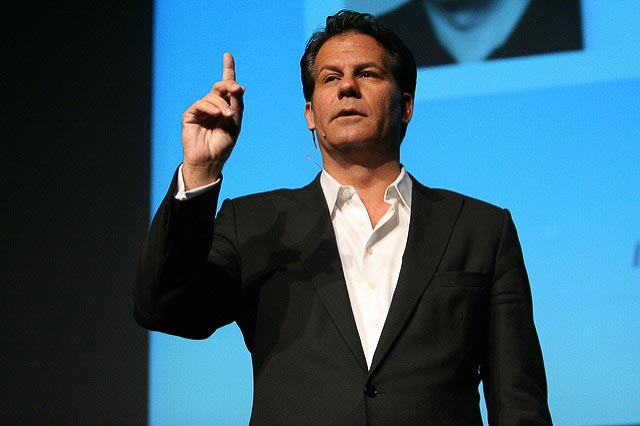Houston has higher levels of inequality and segregation than every U.S. metro except New York and Los Angeles, according to an analysis famed author and researcher Richard Florida discussed Thursday night.
Florida, the co-founder of The Atlantic's urban news website City Lab, said cities are increasingly grappling with disparity and inequality, and the much-heralded renaissance of urban living has left millions behind.
Florida became famous after publishing his influential 2002 book "The Rise of the Creative Class," which described the rise of a group that includes engineers, artists, educators and scientists, among others. He argued that cities could thrive if they figured out how to attract that category of worker.
But his forthcoming book, "The New Urban Crisis," reveals what may have been an unanticipated consequence of the movement in the 2000s and 2010s that saw people -- many well-off, many members of the creative class -- return to the core of urban cities: increased disparity within cities, along with the decimation of middle-class communities.
It's what Florida calls a "winner take all" approach to urbanism that's failing. He pointed to Houston as a prime example.
Cities are no longer poor urban cores surrounded by wealthy suburbs. The urban cores are rich too. What remains, Florida says, is a "patchwork metropolis," or rich and poor neighborhoods living side by side but not interacting with each other.
"There are areas of concentrated advantage -- small areas where the privileged third of us live," Florida said. They're surrounded by poorer communities, as "two worlds that never meet."
Florida delivered his remarks at a lecture sponsored by the Kinder Institute for Urban Research and the Greater Houston Community Foundation.
He argued that one of the reasons cities are suffering from grave disparity is the low pay of service workers. In the mid-20th century, the middle class thrived because a conscious decision was made to pay factory workers a livable wage that would allow them access to homeownership and a middle-class lifestyle despite not being highly educated.
That benefited the workers and their families, but it also benefits the economy more broadly -- after all, those workers were also consumers who bought American-made kitchen gadgets, furniture, clothes, and other goods.
Today, he argued, those manufacturing jobs are largely gone, supplanted by service workers who work in nursing homes, day care centers, hotels and restaurants. They are paid little, and homeownership -- or access to other middle-class amenities -- is a pipe dream for most of them.
In Houston, Florida said, there are 825,000 workers in the creative class -- but there are 1.2 million service workers, who represent almost half the entire workforce.
In the country's most expensive cities, the creative class can still make a nice life. Today, that's all but impossible for service workers. "You want to understand inequality?" Florida that. "That's Inequality 101."
To make cities work, society needs to make a deliberate decision to treat service workers today the way it treated factory workers 60 years ago. Florida emphasized that his message isn't just about being magnanimous, it's about economics: studies have proven that if you pay service workers decent salaries, companies reap bigger profits because workers become more creative and more engaged.
In his remarks, Florida didn't comment on how, exactly, the country could be persuaded to do that at a time when raising the minimum wage above even $7.25 per hour is considered controversial.
He did offer other policy recommendations for addressing the urban disparity he calls the "new urban crisis." Among them: build more housing in the country's most expensive cities; build a mix of dense housing types (not just high-rise condos); create more affordable rental housing; repair the country's infrastructure; and build transit connections between cities and suburbs.
"We need a new urban policy," Florida said.


